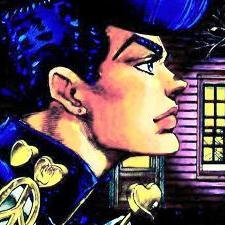Artist: Boris
Single: NOISE
Score:
NOISE? Don't take that as a negative on this one.
Experimental band Boris released their nineteenth album, fittingly entitled NOISE, earlier this year. Inspired by punk music at the start of their formation, they covered punk songs in early demos and were influenced by bands such as 'The Melvins,' but Boris have shown they excel in more than just this one genre. They certainly haven’t failed in showcasing their various musical approaches in NOISE. What’s brilliant about the album is that it includes many different styles and genres in one tiny package to showcase their progressive sound. While the album has only eight tracks, it's an appropriate fifty eight minutes long album, with the standout track being "Angel," the lengthy eighteen minutes song! Anyone can easily dive headfirst into this album even if it’s your first time listening to them. This is because of the experimental approach they took to widen their musical feats even more so to entice a much larger audience. There’s the expected rock elements, a healthy slice of hardcore and some sparkling shoegaze to name only a few most noticeable styles.
The opening, “黒猫メロディ” (kuroneko melody), welcomes the listener in for an exciting ride. It’s a smooth and easy listening track, yet upbeat and energetic. The sporadic inclusion of aggressive guitars, playful drum hits and quick piano taps creates a wild tune. And when the chorus hits, we hear all these sounds mixed beautifully into a juicy head banging mess. This is just the opening track!
All tracks utilise the rock genre Boris favours, while also including psychedelic melodies. Track two, “Vanilla” has a smooth sound to it. Like a grand opening, it’s got high energy right from the start, opening with different, heavy guitar playing from the left ear to the right, suddenly colliding together with powerful vocals. The next tracks “あの人たち” (Ano Hitotachi) and “雨” (Ame) makes effective usage of the shoegaze genre, both being my favourite tracks of the album. They’re atmospheric, dramatic and haunting, slowing down the pace of the album in preparation for the quicker and lengthier album pieces. “雨” is absolutely delightful in the way Waka’s weaker and breathier vocals are used instead of Atsuo or Takeshi’s stronger voices, making the tracks atmosphere even more intense. How Waka's gentler vocals contrast so well with the overall heavy sound of the piece makes this truly captivating.
With a neatly contrasting title next, the cheesy sounding jazz influenced “太陽のバカ” (Taiyō no baka) is a fun break from the heavy tunes beforehand. It’ll encourage you not to head bang, but to dance like we’re back in a 90’s party. Its sound is very reminiscent to such a time, with a repetition of beats and vocals. The layering effect of Atsuo and Takeshi’s voices create echoes and a very enjoyable break from their darker side we just heard.
This cheerful number leads into the album track masterpiece that is “Angel.” Don’t let it's length put you off - you’re missing out on a journey if you do! The song starts with a lone piano, then slowly building up alongside tribal percussion instruments. It’s varied and takes on many sounds, from black metal to psychedelic and shoegaze. As Atsuo’s voice is introduced into the track, guitars begin to become louder and choppier until we hit seven minutes when things finally explode. Shrieks from the guitar wails and drums thrash for minutes as Atsuo sings, all musical ingredients now bellowing out. The final few minutes is a lengthy, shoegaze finale, ending on a massive high. The gradual escalation makes this a dramatic and memorable piece. The only down side to this, as many might be expecting, is the length of the track. While beautifully created, those who already have to hover over the skip button for ballads may be quickly put off by this one.
Another favourite, “Quicksilver,” is exactly what you think when you read the track title. It’s extremely fast paced yet melodious at the same time, making it a very enjoyable and unforgettable piece of the album even after the magical “Angel.” The song has a harder sound overall and nicely contrasts with the journey we just experienced beforehand. And finally, "Siesta" (シエスタ) is a calm, instrumental track which waves us a mournful goodbye. It’s awfully haunting and melancholic sounding, making this end even more emotional.
As a whole, the album just keeps on giving, never slowing down and turning many corners when it comes to musical direction. And yet, it never disappoints. Not one track drags the album down, even if the track lengths all vary and it can appear daunting at first. You just can’t go wrong with Boris.

